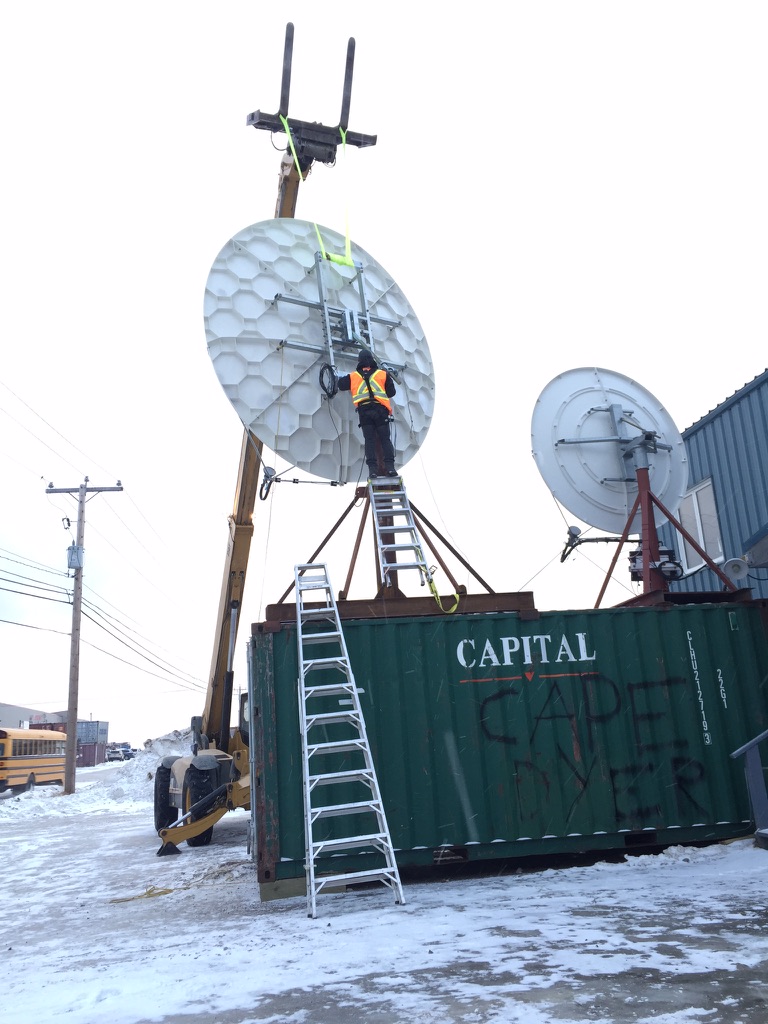The Canadian telecommunications industry is notoriously inhospitable to newcomers.
Aspiring players undeterred by the exorbitant costs of entering the heavily regulated space typically stumble over bureaucratic obstacles and fizzle out before launch.
Those who do manage to establish themselves must contend with the country’s telecom oligopoly, consisting of Bell, Telus, and Rogers. Recent takeovers indicate that these industry titans are formidable competitors, more than capable of suppressing contenders aiming to challenge their dominance.
Over the past few years especially, the “Big Three” have engaged in a purchasing frenzy, slurping up smaller service providers and augmenting their already substantial market share.
In 2014, Telus acquired Public Mobile, followed by Altima Telecom in 2022. In 2016, Rogers acquired Mobilicity for $465 million, while Shaw absorbed Wind Mobile. Rogers and Shaw subsequently merged in 2023, forming a new telecom giant. Bell purchased Manitoba Telecom Services for $3.9 billion in 2017, and in 2022, acquired both Distributel and Ebox.
Adding to this disheartening trend, TekSavvy, the nation’s largest competitive internet service provider, recently explored a potential sale.
This list of acquisitions and mergers (which is unfortunately far from comprehensive) raises the question: why would anyone of sound mind attempt to launch a telecommunications company in Canada?
Enter Samer Bishay, Founder and CEO of Iristel, Canada’s largest competitive local exchange carrier (CLEC). His goal upon entering the domestic market was to aid the nation’s most underserved communities, connecting the chronically disconnected.
“I was born in Cairo, Egypt. At the age of six months, my parents brought me to Nigeria, where my father was employed by the World Bank. My upbringing exposed me to poverty, illness, hunger, and famine. In 2011, I flew my aircraft across Northern Canada, journeying from Manitoba all the way to the Northwest Territories, Yukon, and Alaska. I stopped in many communities along the way, including Inuvik and Old Crow,” he explains.

“As I touched down in those communities, it quickly became clear that they were dealing with difficult circumstances, possibly even more severe than what I experienced during my upbringing in Africa. They not only lacked internet access but were also physically isolated from the rest of the country. Without connecting roads, essential goods and personnel had to be airlifted to these areas. I wanted to help.”
With a pilot’s license and passion for serving the underserved, who wouldn’t want to collaborate with Samer? As it turns out, other Canadian companies.
“Canadian telcos don’t like to deal with other Canadian telcos. At first, they’ll try to bury you. If that fails, they’ll try to buy you.”
Consequently, Samer had to establish his reputation internationally before building in Canada.
“My first client was a U.S. firm spun off from AT&T, and my first deployment was a VoIP node in the Ivory Coast. The agreement was simple: if my concoction proved to be a cost effective route into Africa, they’d buy it. Ultimately, I managed to save my customer a substantial amount of money.”
“If I had approached Bell Canada during that period with the same proposal, they wouldn’t have accepted it. I can sell my product to AT&T but not my fellow compatriot.”
Even after generating considerable momentum in West Africa, federal constraints made it difficult for Samer to expand his business within Canada’s borders. While the policies drafted by the Canadian Radio-television and Telecommunications Commission (CRTC) and other regulatory bodies aim to encourage competition and support smaller entities, inadequate enforcement and monitoring make them vulnerable to manipulation by established players.
“Regulations might seem beneficial to new entrants, but when incumbents have the leeway to construe these rules in their favor, they can manipulate them to delay projects and starve competition,” explains Samer.
“Consider, for example, the case of the tower sharing mandate, which was introduced by Industry Canada in 2007. While incumbents did technically comply with this mandate by granting their rivals tower access, they also imposed numerous unreasonable conditions. Competitors often found themselves obligated to undergo costly engineering assessments that spanned several months.”

For a small business operating with limited resources, waiting for months to launch a service is not a feasible option. Rather than waiting, numerous new participants opted to construct their own towers, which explains the abundance of superfluous structures dotting the prairies.
According to Samer, rules fraught with loopholes such as the tower sharing mandate indicate that government agencies like the CRTC and Innovation, Science and Economic Development Canada are not in the pocket of Big Telco, but staffed by policymakers lacking practical experience in the field.
Of course, government policies could be toothless by design, confirming the belief of many broadband activists that major telecommunication companies wield undue influence over federal organizations. Attempting to unravel the mystery of why pro-competition legislations consistently come up short is a perplexing exercise. “It’s hard not to become paranoid in this field,” says Samer.
Whether stemming from a lack of experience or undue influence, governmental decisions overwhelmingly appear to favor major telecommunications companies while disadvantaging both consumers and competitors. Samer has repeatedly found himself adversely affected by these judgments, with the abrupt closure of Sugar Mobile in 2017 serving as a vivid example.
“In 2015 we launched Sugar Mobile, Canada’s first independent mobile virtual network operator. We provided our customers with one gigabyte of data for only $19 per month, a remarkably low rate at the time,” he says.
“Unfortunately, this offering didn’t last long. Rogers lodged a complaint with the CRTC, asserting that Sugar Mobile customers were consistently roaming on its cellular network. This claim was patently false. Calls made by our customers were routed through Rogers’ 3G network solely when Wi-Fi connectivity was unavailable. Considering our clientele mainly comprised students and seniors who frequented places equipped with easily accessible public Wi-Fi networks, the vast majority of calls were completed over the internet. Our data demonstrated that 90% of the calls originating from our customers were carried out via Wi-Fi…”
However, instead of utilizing this data to exonerate Sugar Mobile, the CRTC opted to weaponize it.
“During that period, the CRTC firmly championed ‘facilities-based competition,’ favoring competition among providers with their own networks. They informed us that our service wasn’t deemed ‘facilities-based’ since it heavily relied on Wi-Fi networks that we neither constructed, owned, nor operated. Consequently, they forced us to cease operations.”
This result was extremely detrimental to consumers. “30,000 Canadians now had to pay a minimum of $60 per month to get a data plan,” says Samer.
The recent appointment of Vicky Eatrides as the chairperson of the CRTC does offer a glimmer of hope for smaller players. In stark contrast to many of her predecessors, Eatrides has a background as a competition lawyer in Canada’s public service, and is a self-proclaimed competition advocate. One of her first decisions at the CRTC was to reduce wholesale rates by ten percent, taking a firm pro-competition stance, and overturning a 2019 decision made by the organization’s previous chairperson.

Nevertheless, Samer remains cautiously optimistic.
“I’m hopeful that the new chairperson will bring about positive change. Still, given the many disappointments I’ve experienced in the past, I remain skeptical. It’s hard to trust the system.”
Samer’s lack of trust in the system is disheartening, especially considering the altruistic motives that initially drove him into the field.


Well it goes to show you big bussisness has money to throw into the politicians pockets an have their dominance over us. Look at what the big 3 sumbiches did when Netflix came out people started cutting off their cable bcuz it was skyrocketing in price and just went to Internet which was cheaper. So the big 3 the started skyrocketing their Internet prices you pay more now just for Internet than you did a few years ago for Internet/phone/cable combined. Where’s the control over the price gouchin we don’t have it bcuz the rule makers or ones who monitor the rules are getting envelopes of money to shut up. Hopefully Samer can come in an be reasonable to us then we’ll have more follow in Samers steps.
thats really cool. Also WestNet is a huge player in the Canadian & US market. They were the first to provide many parts of Rural Alberta lots of internet in the 1990s